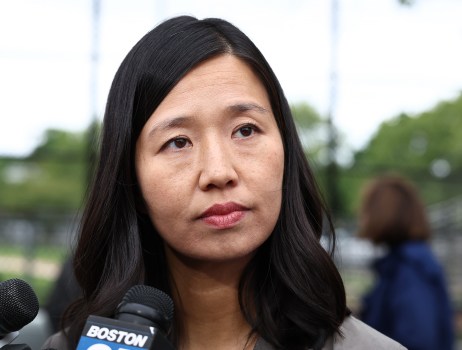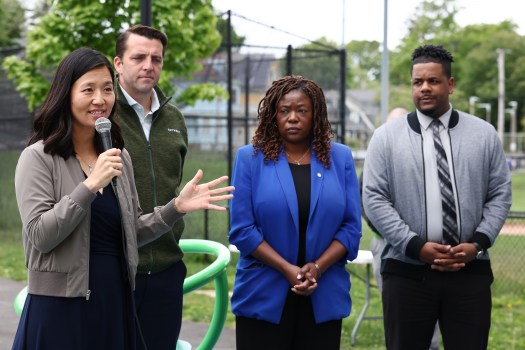In a formal complaint to the state Department of Revenue, Pioneer Institute’s legal department claims that the City of Boston is illegally retaliating against commercial real estate owners who challenge their tax assessments by imposing a concealed penalty.
The city’s assessing department has been covertly and methodically raising property tax assessments on commercial properties that are being appealed at the Commonwealth’s Appellate Tax Board, imposing what amounts to a financial penalty on taxpayers who exercise their statutory rights under state law, according to the notice sent to DOR Commissioner Geoffrey Snyder on Tuesday.
Frank J. Bailey, a former judge of the U.S. Bankruptcy Court for the District of Massachusetts and president of the Pioneer New England Legal Foundation, declared in a statement that this practice is unlawful and unconstitutional.
“The city is punishing people for seeking redress through lawful channels by targeting property owners for higher assessments just because they filed an appeal,” he said. That is blatantly retaliatory and a breach of the fundamental rights guaranteed by the constitution.
Pioneer’s official notification follows the practice’s disclosure by Daniel Swift, a principal at the international tax consulting firm Ryan, which represents several Boston-based commercial property owners, and the Herald’s article on it this month.
After learning about his customers’ alleged hidden tax penalty, Swift did some math. Listed as an ATB disagreement on property record cards on file at City Hall, the penalty appears to entail the city raising the assessed value of commercial properties that had appealed a previous tax assessment.
According to Swift’s study, the city did not notify the fines, which resulted in higher property taxes for various business lots ranging from a few hundred or thousands of dollars to about $400,000.
Earlier this month, Swift told the Herald, “It’s very unusual.” Nowhere else in Massachusetts have I ever seen it. It wasn’t until fiscal 24 that I saw it in Boston. You are now being penalized for appealing your evaluation from the following year.
The Pioneer Legal Foundation said that after looking into the purported city practice on its own, it came to the same conclusion.
In its letter, Pioneer details how, following an appeal by a taxpayer, Boston has covertly overturned its own commercial property valuations, raising assessments by millions of dollars in some situations during the fiscal year.
According to Pioneer, those overrides are revealed on internal property tax cards that taxpayers must pick up in person at City Hall rather than on property tax bills or public announcements. According to a foundation statement, Pioneer has also been identified as having the penalty designated as an override open appeal in addition to the ATB disagreement.
Pioneer’s investigation also revealed that the city attempted to hide its conduct by deleting those internal references to assessment override before making the final public versions of the records available.
Additionally, the notification notes that the alleged assessment method occurs at a time when commercial real estate in Boston has been generally losing value since the pandemic.
Related Articles
-
Traffic expert concludes Boston s White Stadium transportation plan for soccer game days is a disaster
-
Disgraced Boston City Councilor Tania Fernandes Anderson plans to celebrate at final meeting: One last stand
-
Josh Kraft rips Boston Mayor Michelle Wu on bike lanes: Streets are a chaotic mess
-
Critics fear tall towers turning downtown Boston into Manhattan
-
Michelle Wu bashes Josh Kraft for leaking entirely false $172M tax hit for Boston s White Stadium
According to Bailey, neither the state of the market nor the homes’ upgrades constitute the basis for these additional evaluations. They are founded only on the fact that the taxpayer is contesting an overvaluation in accordance with their legal rights. The federal and Massachusetts constitutions, as well as state law, both prohibit such.
In a previous statement to the Herald, Mayor Michelle Wu’s office denied Swift’s analysis that exposed the concealed penalty, but they did not immediately reply to a request for comment.
According to municipal spokesperson Emma Pettit, these claims either misrepresent or disregard the particular standards in state tax law that specify how cities determine and complete appraisals. When determining valuations, the City of Boston complies with all state laws, and the State Department of Revenue has validated each value.












